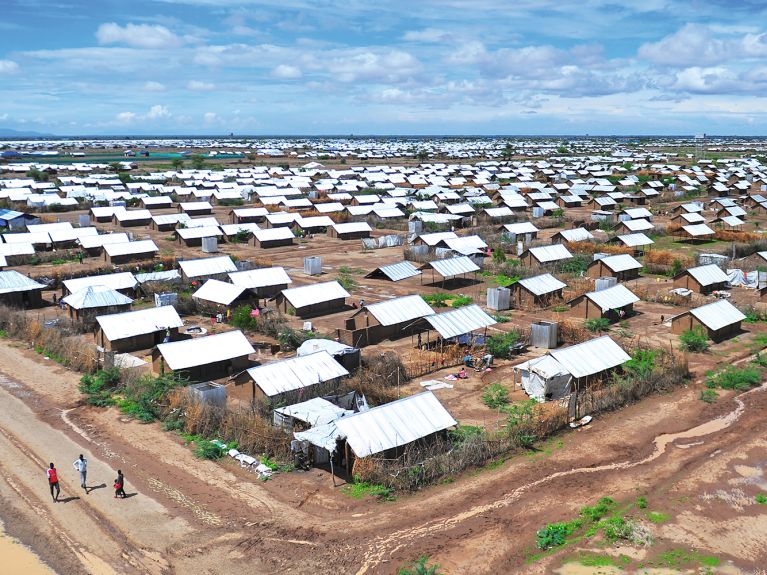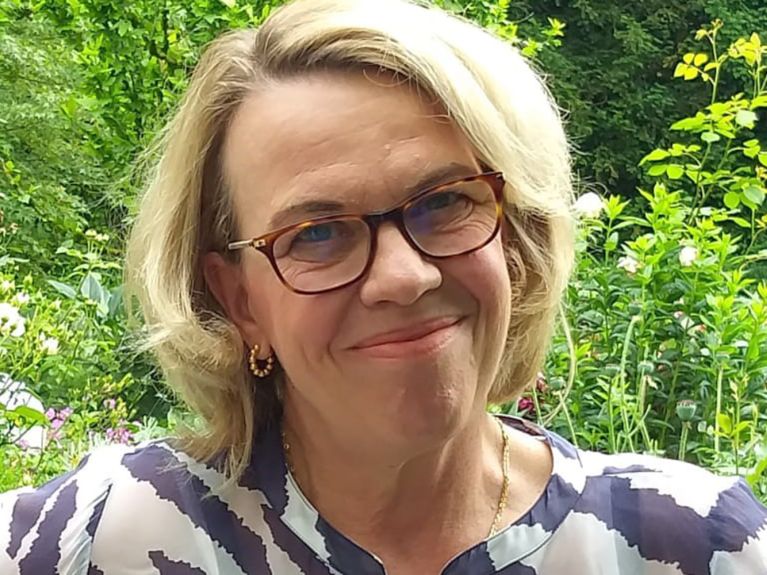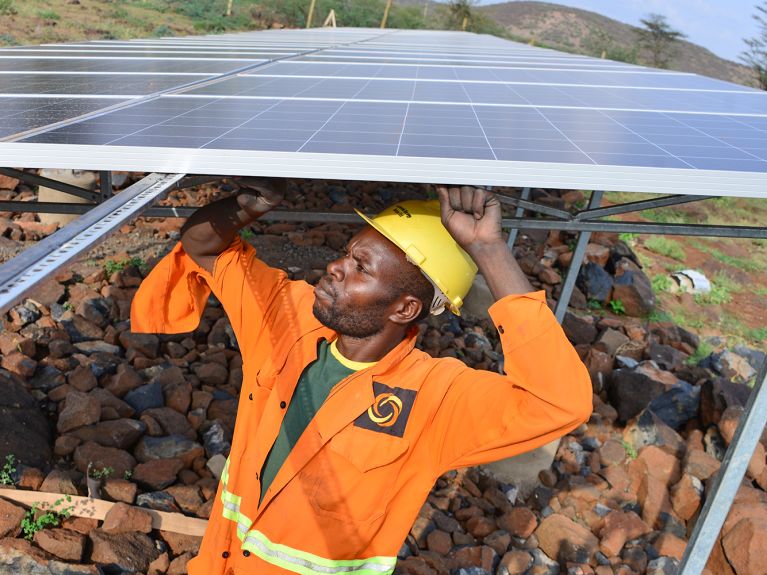“Promoting independence”
Gabriele Wurster-Vihuto is committed to helping refugees in Kenya. Protecting them from coronavirus is an important part of her work.

200,000 people live in Kakuma, Kenya’s second-largest refugee camp. Since 2015, Germany’s Gesellschaft für Internationale Zusammenarbeit (GIZ) has been helping to improve their living conditions and to make them more independent. In our interview, Programme Manager Gabriele Wurster-Vihuto explains why her work has become even more relevant during the corona crisis.

Ms Wurster-Vihuto, how badly is the Kakuma refugee camp in Kenya currently affected by the corona pandemic?
As things currently stand (15 June 2020), only two people in the camp have tested positive for corona. The patients are asymptomatic and in an isolation ward. One of them will probably be able to leave the ward soon. As is the case around the world, their contacts are being painstakingly traced.
Kenya has nearly 4,000 confirmed corona cases at present. How is it that the camp has been successfully protected against the virus so far?
The rules are strict at Camp Kakuma: the national curfew regulations also apply here; the mandatory wearing of masks, wide-ranging hygiene procedures and bans on contact are intended to prevent the virus from spreading within the camp. People at the camp live in very overcrowded conditions, which of course poses an additional challenge when it comes to social distancing and following hygiene regulations. Facilitating this is one of our most important tasks at the moment.
What help is the GIZ providing in this situation?
We are helping on various levels. We ran a hygiene course to train 110 people as health specialists. They go from house to house, distributing soap, masks and disinfectants, and informing the camp’s residents about hygiene-related issues. What is more, the GIZ gives tips in a radio programme twice a week about how to protect oneself against becoming infected with Covid-19. Incidentally, we also work with the people who live in the neighbouring communities around the refugee camp. We also believe that it is very important to include these people in our work. Many semi-nomadic people live in the Turkana region. The hygiene teams trained by the GIZ also go to them, or local residents visit the mobile health centres provided by the Kenyan Ministry of Health.

Since 2015, the GIZ has been encouraging interaction between the refugees in the camp and local communities. How well are the people working together?
We want to improve living conditions for the camp residents and for the local population, and to promote their independence. For example, we run a training and continuing education programme to qualify people as solar engineers; it is open both to camp residents and to the local population. As a result, we are able to supply solar power to the camp’s isolation and quarantine wards during the corona crisis. Feeding everyone is a major problem at present: supply chains with countries such as Uganda, and indeed in Kenya itself, have been badly disrupted. In late 2019 we had already built four greenhouses for growing vegetables, which provides enough food for 78,000 people once a week. We are currently planning seven more greenhouses that will be able to supply 120,000 people with fresh vegetables. Farmers have teamed up in groups and are producing jointly. They sell their products at markets in the surrounding area, among other things. Thus they also help with supplying food to the communities directly neighbouring the camp.
How is the corona crisis affecting relations between people in the camp and the neighbouring communities?
We are pleased that the refugees and the local population are working together and that relations – which after all are often fragile – have not broken down. This strengthens the ties between them.
